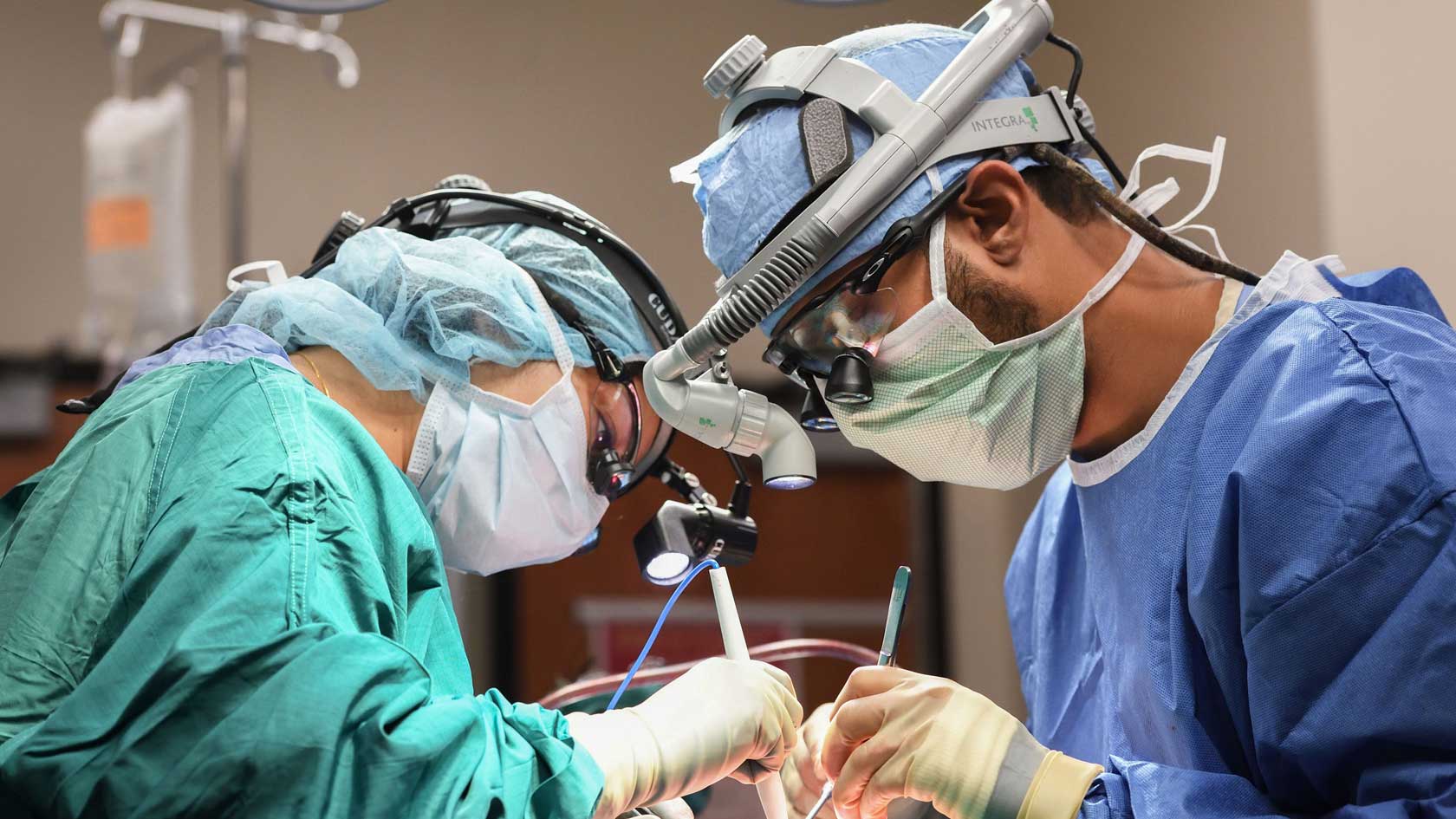Voice Disorders Got You Down? See How a Voice Specialist Can Treat Them
Voice Disorders Got You Down? See How a Voice Specialist Can Treat Them
Blog Article
Discovering the Field of Otolaryngology: What to Anticipate When You Get In Touch With an ENT
Otolaryngology, typically referred to as ENT, encompasses the medical diagnosis and therapy of ear, nose, and throat disorders. For those experiencing relevant problems, speaking with an ENT specialist can provide clarity and alleviation. Recognizing what to expect throughout such consultations is important for efficient interaction and treatment. This summary will certainly detail essential aspects of the ENT experience, including typical reasons for visits and the procedures associated with diagnosis and therapy.

Understanding Otolaryngology: A Summary
Otolaryngology, frequently referred to as ENT (Ear, Nose, and Throat) medicine, is a customized branch of medication that focuses on the diagnosis and treatment of problems impacting these essential locations of the human body. This field includes a vast array of conditions, including those pertaining to hearing, equilibrium, breathing function, and speech. Otolaryngologists are trained to handle both surgical and clinical therapies, using sophisticated strategies and technologies. Their experience prolongs beyond traditional disorders, dealing with concerns such as allergies, sinus infections, and hearing loss. Additionally, they play an essential function in the monitoring of head and neck cancers, giving detailed care customized to private person requirements. On the whole, otolaryngology remains vital for keeping health and top quality of life in afflicted people.
Typical Factors to See an ENT Professional
Several people look for the proficiency of an ENT specialist for a variety of factors, reflecting the diverse nature of problems that affect the throat, ear, and nose. Usual issues include persistent sinus problems, which typically results in relentless nasal blockage and face discomfort. Allergic reactions and their connected signs and symptoms, such as sneezing and itching, additionally motivate check outs to these specialists (ENT Doctor). Hearing loss, whether progressive or abrupt, is one more substantial factor for examination. In addition, individuals may look for assessment for throat conditions, including consistent hoarseness or swallowing problems. Rest apnea, identified by disturbed breathing during rest, is often addressed by ENT specialists as well. Each of these problems highlights the significance of specialized treatment in handling intricate ENT-related wellness issues
Getting ready for Your ENT Visit
When planning for an ENT appointment, it is crucial to collect appropriate info and think about any certain issues. Clients need to compile an in-depth case history, consisting of previous ear, nose, or throat concerns, surgeries, and existing medicines. Documenting symptoms-- such as extent, duration, and frequency-- can offer beneficial insights for the ENT expert. Additionally, individuals should prepare a checklist of inquiries they wish to ask, making certain that all issues are dealt with during the check out. Bringing along any relevant medical documents or examination outcomes can additionally aid the ENT in recognizing the client's problem. People must validate their consultation details, consisting of time, date, and location, to lessen any type of final confusion. Proper prep work can improve the efficiency of the assessment and bring about better outcomes.
What to Expect Throughout the Examination
As the assessment starts, the individual can expect to participate in an extensive conversation with the ENT specialist concerning their symptoms and case history. The expert will inquire about the period, frequency, and seriousness of signs and symptoms such as hearing loss, nasal congestion, or aching throat. In addition, the individual's previous medical conditions, medications, and any relevant family members background will certainly be reviewed, assisting the specialist in forming a full understanding of the person's health. The ENT might likewise inquire about way of life elements, such as exposure to irritants or irritants. This open dialogue establishes a foundation for the consultation, making certain that the client's concerns are addressed and establishing the phase for any kind of needed assessments or referrals for therapy.
Diagnostic Examinations and Procedures in Otolaryngology
An array of analysis examinations and procedures are vital in otolaryngology to precisely assess and identify problems impacting the throat, nose, and ear. Typical examinations consist of audiometry, which determines hearing feature, and tympanometry, evaluating center ear pressure. Nasal endoscopy enables visualization of the nasal passages and sinuses, while laryngoscopy analyzes the throat and vocal cables. Imaging methods, such as CT scans and MRIs, provide detailed sights of head and neck frameworks. Allergy screening may also be conducted to determine triggers for sinus or respiratory system problems. These diagnostic devices enable ENT professionals to create a comprehensive understanding of people' conditions, ensuring tailored and efficient administration plans. Appropriate medical diagnosis is vital for successful therapy outcomes in otolaryngology.
Therapy Alternatives Used by ENT Specialists
ENT specialists offer a variety of treatment options customized to attend to particular problems affecting the ear, nose, and throat. These treatments vary from conservative techniques, such as medicine and way of living alterations, to more intrusive treatments. Allergies might be handled with antihistamines or immunotherapy, while persistent sinusitis could need nasal corticosteroids or sinus surgery. For hearing loss, ENT professionals frequently recommend listening devices or medical treatments like cochlear implants. In instances of throat conditions, options can include speech therapy or surgeries to eliminate obstructions. Furthermore, they might provide advice for taking care of sleep apnea, including the usage of CPAP tools or surgical treatments. Generally, the goal is to improve clients' top quality of life via personalized care and reliable treatment strategies.
When to Seek Follow-Up Treatment With an ENT
When to seek follow-up treatment with an ENT specialist is essential for taking care of recurring signs or complications related to ear, throat, and nose conditions, acknowledging. Clients should take into consideration setting up a follow-up appointment if symptoms continue in spite of initial therapy, such as persistent ear pain, nasal congestion, or throat discomfort. Modifications in hearing, balance concerns, or unusual nasal discharge might also warrant more analysis. Furthermore, if a advice patient experiences side effects from recommended medicines or has actually undergone a procedure, follow-up treatment is necessary to keep track of healing and deal with any kind of problems. Timely appointments can guarantee reliable monitoring of conditions, protect against prospective problems, and offer assurance relating to one's health. Looking for follow-up care advertises positive health and wellness monitoring in otolaryngology.
Regularly Asked Concerns

What Certifications Should I Look for in an ENT Professional?
When seeking an ENT specialist, one must search for board accreditation, appropriate experience, and strong person evaluations. Additionally, reliable communication skills and a compassionate strategy can considerably enhance the total therapy experience.
How Do I Pick the Right ENT for My Requirements?
Choosing the ideal ENT specialist entails examining their qualifications, experience, and person evaluations (ENT Clinic). It is important to contemplate their interaction style and strategy to treatment, guaranteeing they line up with the person's particular wellness needs and choices
Are There Any Type Of Risks Related To ENT Procedures?
The threats related to ENT treatments may consist of infection, blood loss, anesthesia issues, and potential damages to bordering structures. Patients need to discuss these dangers with their physician to understand private concerns and assurance educated decisions.
Exactly How Can I Handle Stress And Anxiety Prior To My ENT Consultation?
To take care of anxiety before a consultation, individuals can practice deep breathing workouts, visualize positive he said results, prepare concerns beforehand, and seek support from close friends or family, cultivating a feeling of peace of mind and calmness.
What Should I Do if I Experience Adverse Effects From Treatment?
If adverse effects from treatment occur, the person needs to immediately report them to their healthcare copyright. Modifications to treatment or extra interventions may be needed to guarantee safety directory and security and efficiency in managing their condition - Sinus. As the examination starts, the patient can anticipate to engage in a thorough discussion with the ENT specialist about their symptoms and clinical background. These analysis tools enable ENT specialists to develop a thorough understanding of patients' problems, making certain tailored and effective management strategies. ENT professionals use a range of therapy choices tailored to address specific problems impacting the throat, nose, and ear. When looking for an ENT expert, one ought to look for board certification, pertinent experience, and strong patient testimonials. Selecting the right ENT professional includes evaluating their credentials, experience, and individual reviews
Report this page